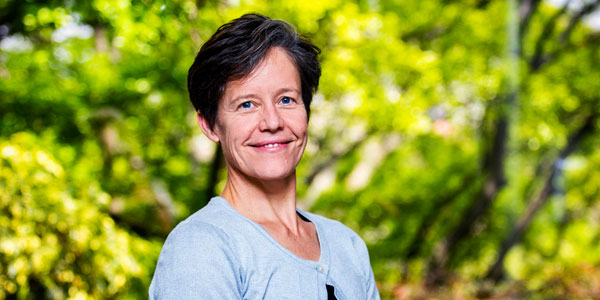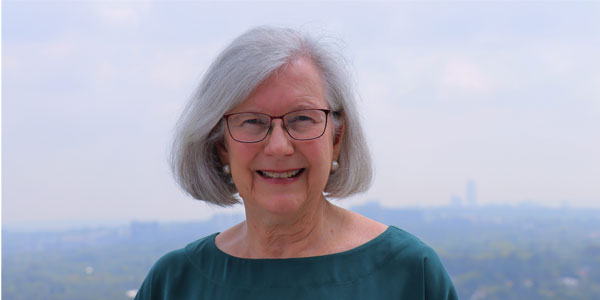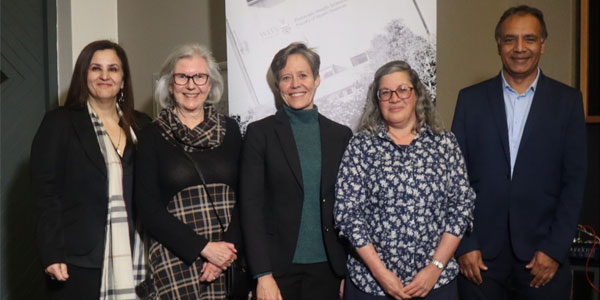Genomics Research in Africa Promises to Enhance Global Health
Harnessing Africa’s unprecedented genetic diversity could provide clues to physiological adaptation and mechanisms of disease and identify new drug targets. Yet, Africa remains underrepresented in genomic studies.

Nephrologist Dr June Fabian, Research Director at the Wits Donald Gordon Medical Centre (WDGMC), says that because of the lack of data, care for African patients can be compromised, with significant consequences in already constrained public health systems. Furthermore, the benefits of focusing on genomics research in Africa extend to global populations, all of whom have their origins in Africa.
“We have had a Eurocentric lens on precision medicine, which discounts the broad genomic diversity on this continent,” says Fabian. Precision medicine individualises diagnosis and treatment for improved health. It considers genetic, biological and phenotype variations, which have been well-researched in the Global North. However, these genomic profiles cannot be applied to all healthcare contexts. Now, African clinicians and researchers are advocating for medical treatment beyond a ‘one size fits all’ approach.
Fabian and Professor Michèle Ramsay, Director of the Sydney Brenner Institute for Molecular Bioscience (SBIMB) at Wits delivered the Faculty of Health Sciences’ annual Prestigious Research Lecture, titled Unlocking the Potential of Genomics for Precision Medicine at the Wits School of Public Health Auditorium on Tuesday, 1 August 2023.
Build local capacity to research non-communicable, rare diseases in Africa
Ramsay said there was an urgent need for local data and research to make medical treatments and treatment approaches fit for purpose on the continent. “The underrepresentation of African genomics in reference and disease-associated databases make it difficult to interpret the potential phenotypic consequences of DNA sequencing data.”

The good news is that Wits is building the necessary research and clinical capacity. One example is an African longitudinal study cohort with over 12,000 older adults from four sub-Saharan African countries. The study, referred to as the Africa Wits-INDEPTH Partnership for Genomic Research (AWI-Gen), examines genetic and environmental contributions to cardiometabolic diseases such as hypertension, heart disease, kidney disease and diabetes. It is a partner of the Human Heredity and Health in Africa, the Data Science for Health Discovery and Innovation in Africa (DS-I Africa) and other international consortia.
“We use this data to demonstrate population sub-structure in Africa and its impact on disease-associated traits. In particular, we’re looking at the genetic factors in cardiometabolic diseases and their interactions with environmental factors and behaviour. Since they all contribute to health and disease, we need more comprehensive data and innovative analysis approaches to understand them better,” said Ramsay.
There has been a significant increase in non-communicable diseases (NCDs) in Africa in the wake of increased urbanisation and Western lifestyles (in parallel with the persistent burden of infectious diseases). African genomic data will be a critical piece of the puzzle that seeks to understand the complex interplay between genetics, lifestyle, and the environment. “African genome diversity can help to interpret the impact of genetic variation on the phenotype,” she said.
Unlocking the potential of genomics in Africa can drive research and innovation in precision medicine. It can foster collaborations between African scientists, international researchers, and pharmaceutical companies, leading to advancements in diagnostics, therapeutics, and preventative strategies. This will undoubtedly improve healthcare globally.
Why we need African genomic data
Fabian discussed her research on chronic kidney disease in African populations. One study focuses on genetic mutations that cause steroid-resistant nephrotic syndrome in black South African children with focal glomerulosclerosis (a condition in which scar tissue develops in the kidney, causing impaired function). Screening for this mutation helps clinicians to identify a subgroup of children that don’t respond to treatment, thus sparing them from unnecessary side effects.
Fabian’s other study examines the association between apolipoprotein L1 (APOL1) genetic variation and kidney function in African populations. Variants of the APOL1 gene were first identified in African Americans and traced back to West Africa, where the variants protect against African sleeping sickness. The downside of these variants is that they also cause kidney disease, explaining the increased risk for kidney disease in those of African ancestry. Fabian and Ramsay found that patterns of APOL1-associated kidney disease in African populations differ from that in the USA highlighting the need to validate research in African populations, rather than assume findings are the same.
Political will, equitable access key to improving African-centered healthcare
Professor Amanda Krause, head of the Division of Human Genetics at the National Health Laboratory Service and the Wits School of Pathology responded to Ramsay and Fabian’s presentations. “The overarching message of this lecture is that we need to translate this research potential into clinical settings.”
This capacity-building requires political will (including government and multinational funding), equitable access, health systems infrastructure, drug development and clinical trials, and committed industry partnerships.
Krause echoed the concluding statement from the lecture: “To improve individual and public health outcomes, genomics research must be done in African populations, led by African investigators.”
New information uncovered by African genomics will undoubtedly lead to improved outcomes for Africans and populations worldwide.
Professor Shabir Madhi, Dean of Wits Faculty of Health Sciences commended Ramsay and Fabian on their research, particularly at the start of National Women’s Month in South Africa. “We have a powerhouse of female researchers doing this work. We’re immensely grateful and proud,” he concluded.

